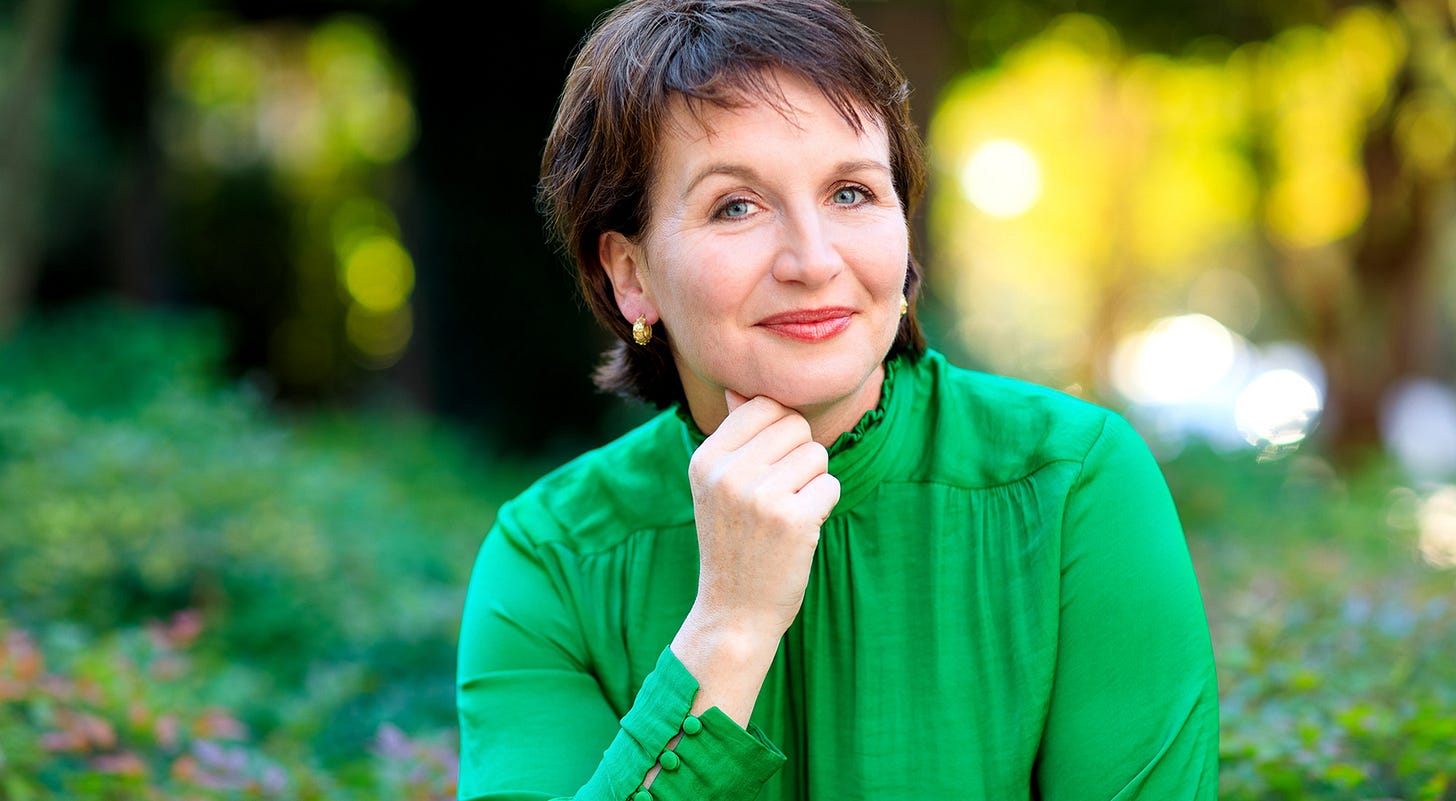Meet Stella O'Malley
About Stella O’Malley
Stella O’Malley is a psychotherapist, bestselling author, public speaker, and parent with extensive experience in counseling and psychotherapy. Originally from Dublin, she now lives in rural Ireland, with her husband, her two children, her dog and her cat.
Stella works in private practice, focusing her work mostly upon adolescents, young adults and parents. Her qualifications include a B.A. in Counseling and Psychotherapy, an M.A. in Cognitive Behavioral Therapy, diplomas in Youth Studies, Psychometric Testing, and Gender Identity Counseling and she is currently studying for a PhD in gender dysphoria among children and adolescents.
Stella centers her therapeutic approach primarily around a psychodynamic perspective within a depth modality. Specializing in working with parents and young people, her expertise has culminated in the publication of bestselling books such as, Cotton Wool Kids (2015), Bully-Proof Kids (2017), and Fragile (2019), which focus on overcoming anxiety and stress. In 2023, Stella released What Your Teen Is Trying To Tell You, a comprehensive guide that helps parents support their teenagers through the storms and stresses of adolescence.
Stella’s latest book When Kids Say They're Trans, co-authored with fellow therapists, Sasha Ayad and Lisa Marchiano, offers a resource for parents who want their children to flourish, but do not believe that hasty medicalization is the best way to ensure long-term health and well-being.
Stella is the founder and Executive Director of Genspect, an international organization that advocates for a healthy approach to sex and gender. She is a clinical advisor for the Society for Evidence-based Gender Medicine, and the Clinical Advisory Network on Sex and Gender, and a founding member of Thoughtful Therapists.
How I Came to Work with Gender + Identity Issues
When I was a young child, roughly three years old, I came to the conclusion that there had been a mistake and that I clearly should be a boy. Why I decided upon this, I’ll never know – I simply don’t remember – but my hunch is that I looked around me and decided that boys were powerful and girls were weak. During my childhood I was a misogynist – my most extreme insult at the time was ‘girlish’ said with a snarl and utter disdain. I was born in 1974, but had I been born decades later, I believe I would have been diagnosed with childhood-onset gender dysphoria, as I certainly fulfilled all the criteria for this diagnosis. Puberty was extremely difficult for me. Like many children with childhood-onset gender dysphoria, I was extremely assertive and intense about my abilities to carry-off being a boy. Had I been offered puberty blockers, I would have been incredibly impressive in assuring the adults that this was what I needed. At the time I thought I was a better boy than any of the boys around me – I thought I was knocking ‘boyhood’ out of the park. I wasn’t offered puberty blockers – or indeed any help with my difficulties. This was a lonely and harrowing experience but I eventually came through puberty and ultimately emerged as a young woman who was comfortable in her own skin.
Many years later, as a psychotherapist who was interested in parenting, I often wrote about mental health issues for the national media. In 2017, when I noticed the discourse about gender issues, I decided to write about my own experiences as a child for the Sunday Independent, so as to add to people’s understanding about gender dysphoria. Consequently I was asked to be the presenter of a documentary, Trans Kids: It’s time to talk. The premise of this film asked the question whether any of the 4000% rise in children and teenagers seeking to transition could be like me? I gained a phenomenal level of insight into trans issues during the making of this film in 2018 and came to realize that a terrible medical scandal was hurting extremely vulnerable children and young people.
After the release of the documentary in November, 2018, I attempted many times to revert to my role as a general psychotherapist who helped families, parents and teenagers. However the extraordinary number of emails I received from people who had been devastated in a range of different ways by gender-related issues led me to become deeply involved in this issue. Then, when the global lockdown happened, I finally had some spare time to run some online meetings for parents who were concerned about their gender-distressed children. I founded the Gender Dysphoria Support Network in March 2020 and I will never forget the pain of those loving parents who only wanted the best for their vulnerable kids. Sasha and I started our podcast, Gender: A Wider Lens in December of 2020. It became clear that a good deal more work was to be done to bring to light the many issues related to medical transition; the impact of co-morbidities; the complicating factors related to ‘pre-gay’ children who experienced internalized homophobia; and the inestimable impact of social media and so I founded Genspect in June 2021 and Beyond Trans in June 2022. I am now fully immersed in working with gender-distressed young people, their parents, detransitioners and also, an often overlooked group, people who regret their medical transition but have decided not to detransition. My Substack has become a focal point for all my work on gender and this is where I offer monthly Q&As plus regular webinars and articles in order to help parents who need some support as they navigate this complex world.

